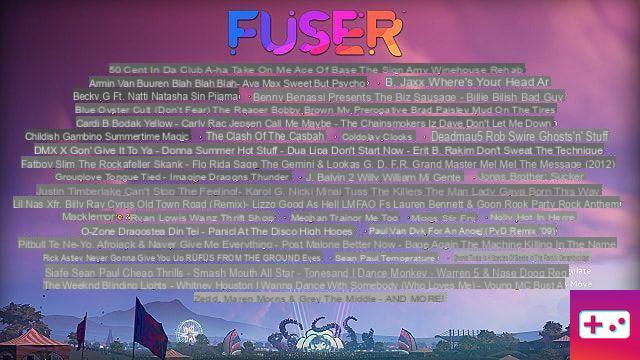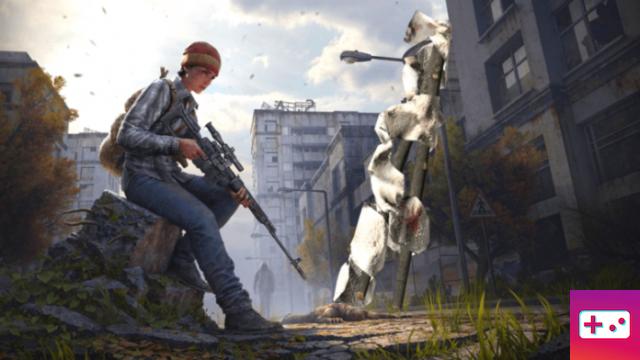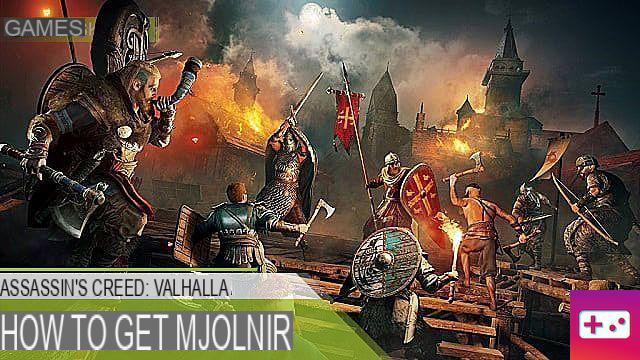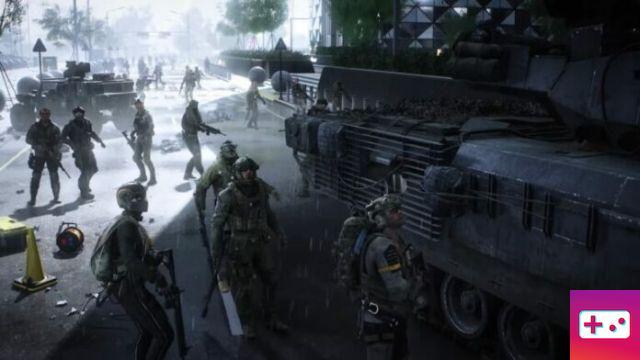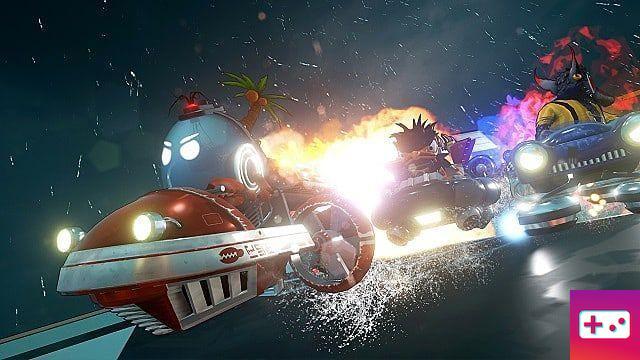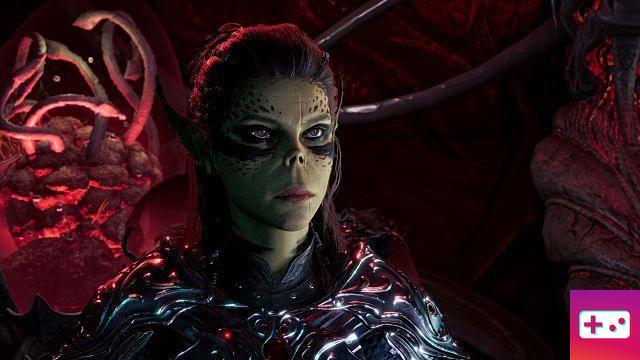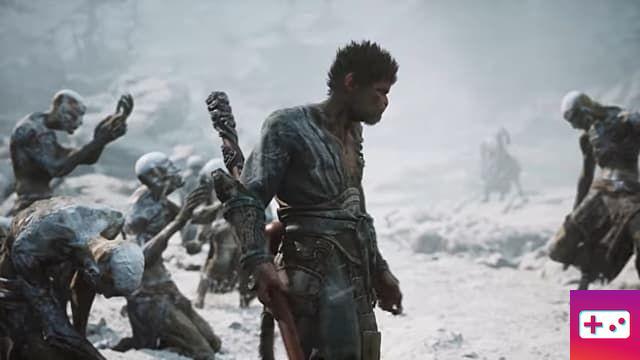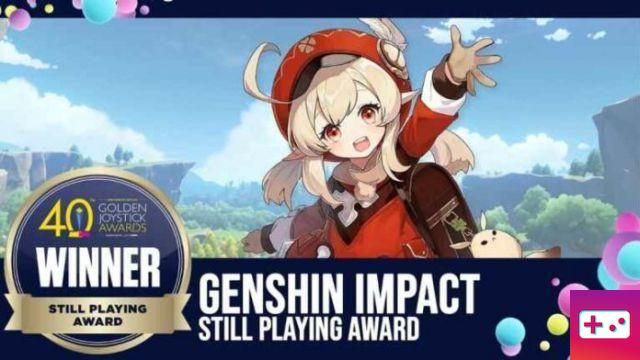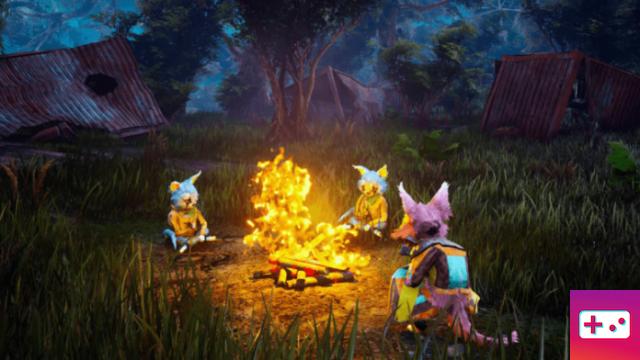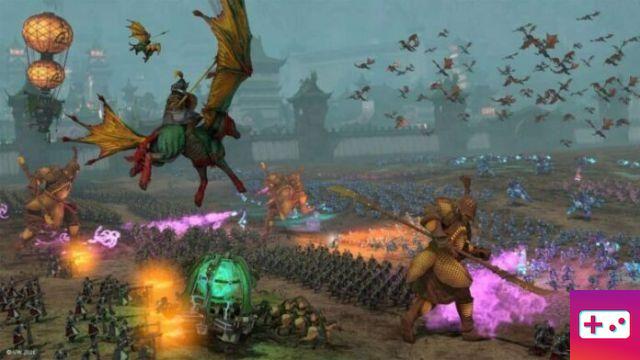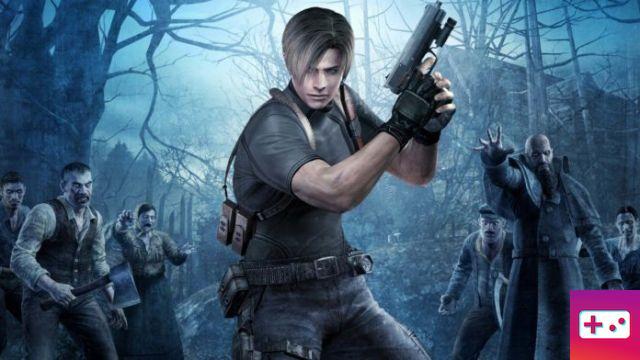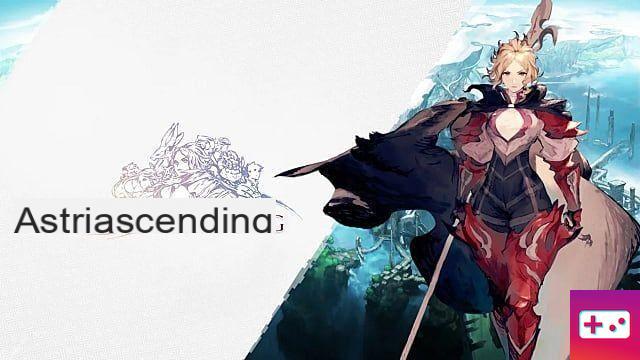
It's a day like any other, until the Miggies arrive. The noise plagues the orchard, disrupting the harmony, so the demigods, excluded from Peyska in tow, rush to the scene to restore order. Only then can fish swim, birds fly, and the cycle of death continues.
This is Astria Ascending, an RPG with as much tonal punch as the end of the previous paragraph and enough proper nouns to make Robert Jordan blush. Artisan Studios' newest RPG is creative but underdeveloped. He is ambitious even if his own inspirations hold him back.
Astria Ascending Review: Failed Ascent
Astria Ascending turns the usual RPG narrative on its head from the start. Nations choose demigods, heroes with unique abilities, to fight the noise every few years and maintain the balance of harmony. Harmony is a handy plot device and little more, but the interesting part is how Astria handles the heroes.
To be the chosen one is literally to be marked for death. New ones arise every three years because the old ones die at the end of the cycle. Instead of traveling the world and gathering a band of heroes, your established band of walking dead heroes undertake multiple tasks in each of the five regions in an attempt to unravel a dark web of mysteries enveloping the world.
It's an intriguing setup for the first 10 minutes, but it feels like it has a well-defined main idea and spends less time or attention on the important pieces that tie it together.
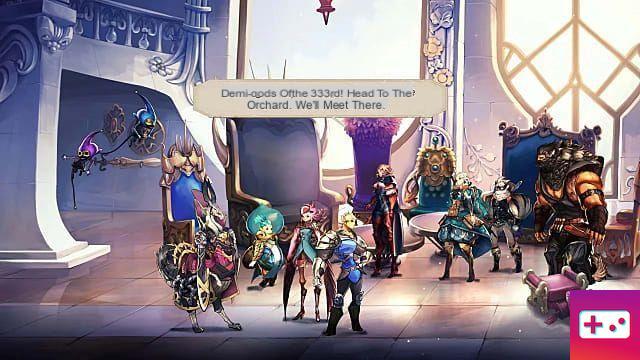
Most people in Astria don't have much to say, and wordy, clumsy handwriting haunts conversations among party members. It's off-putting in itself. Add dozens of unnecessary comments from band members who just have to be heard and no option to skip dialogue, and it's downright obnoxious.
That's not the only odious thing in Astria. The cast is probably the least likable cast of characters I've ever seen; it's almost like they're going out of their way to make you hate them.
Astria is presented as a "mature" version of the genre, though its approach to heavy subject matter and character development never extends beyond general angst. Demigods divide into cliques, argue frequently, and are generally unpleasant, as you would expect from a group of people pushed unwillingly to their own deaths.
I hoped that might change throughout the story, that the heroes might take on new and different perspectives on their fates and even see significant changes in their relationships. I hoped in vain.
The character and even world development remains superficial throughout, which doesn't help alleviate the sense of missed opportunity and simply leaves you with a bitter group of people laughing at each other.
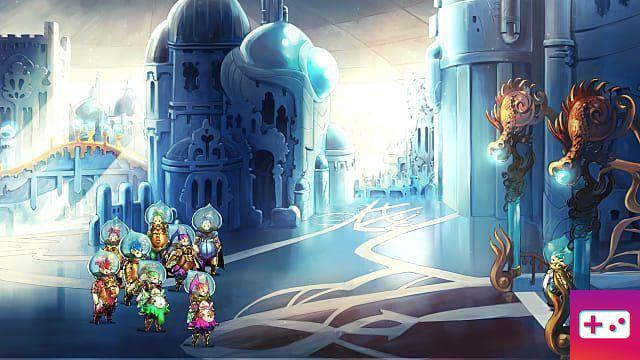
They are also unrepentant racists. The Peyskas are aquatic people who carry fish bowls and seemingly attract unbridled racism from everyone around them. They smell bad, the food they eat is atrocious, they're lazy, untrustworthy, unintelligent – whatever's wrong with the world, the Peyskas are to blame.
If Astria Ascending lived up to its promised maturity and did something with it or took a stand, it might redeem it slightly. Instead, it makes the behavior look like a friendly joke, something the Peyskas and Peyska party members should just take heed.
Once the dialogue stops (finally), you'll explore beautifully drawn environments across Astria's five themed regions, though the execution falls flat here too.
Astria draws from multiple sources for its combat system, but the result is, well… one that obviously tries to resemble the other games. There is a skill tree, but skills are mostly pointless stat boosts. You can fire a magic ring to stun enemies in the field, like in Tales of the Abyss, but it's not really necessary.
Each character belongs to a specific class with (theoretically) unique abilities, though it's hard to see the distinctions as anything other than arbitrary. There's no reason to have a Summoner, Sorcerer, and Scholar when they all perform the same role and even have overlapping skills. Battle itself uses a fairly standard turn-based system revolving around the Focus gimmick.
Party and enemies have their own focus meters, and you can spend focus to charge up attacks. It regenerates in abundance if you exploit enemy weakness, and you can bulldoze through most battles just by spamming Focus. Astria pushes you into so many fights, and I would have liked an extra layer to keep things interesting. Focus balancing ages before the end of the first dungeon.
Astria Ascending Review — The Result
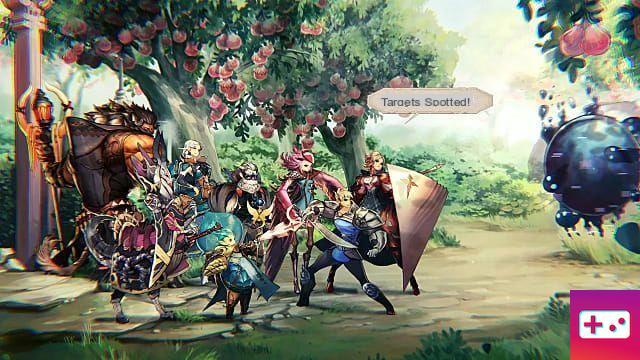
Benefits
- Nice art style
- The foundations of an interesting story that goes against the grain
The inconvenients
- The fight is too easy
- Class and skill systems are unnecessarily complicated
- Flat script and characterization
- Worldbuilding never extends beyond the initial setup
- Overreliance on fantasy tropes
- Someone think of the Peyskas
Astria Ascending wants to be so many things, and maybe that's part of the problem. Instead of trying to be mature or recognizable, he should focus on his unique qualities and develop them into something interesting.
Either way, it's hard to recommend Astria Ascending. There are dozens of other RPGs to donate your time and money to, but if this one interests you anyway, I strongly suggest you wait for a sale.
[Note: Dear Villagers provided the copy of Astria Ascending for the purpose of this review.]









